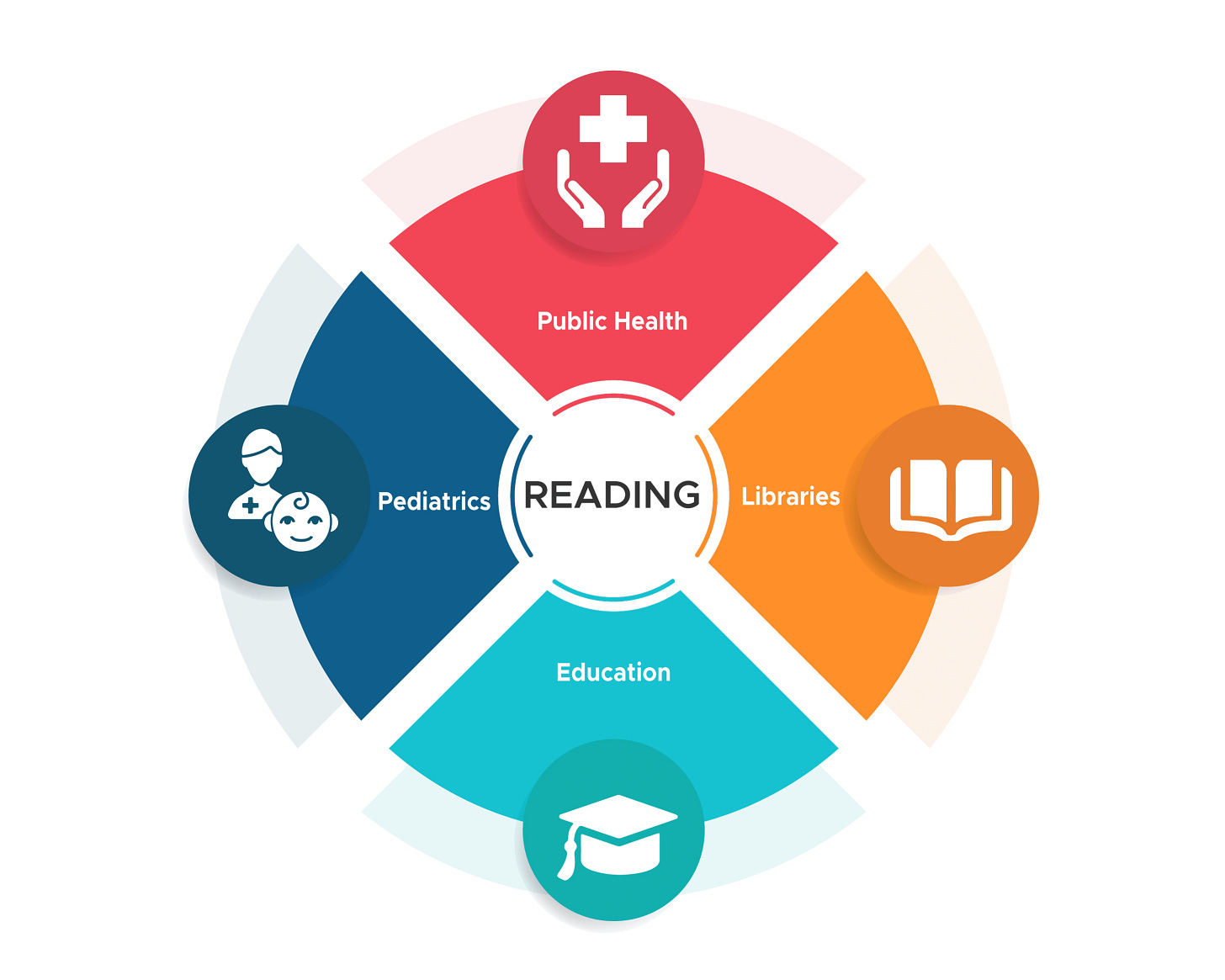Happy March!
Before we dive in, I want to share a padlet I have put together. Start Small is a growing collection of articles and websites pertaining to early literacy, particularly the years 0-3.
Did you know that pediatricians are allotted 3 minutes for “anticipatory guidance”- the information pediatricians give to parents about upcoming growth and development of their child? How can a pediatric practice address literacy needs during that time without ignoring everything else?
I had the pleasure of speaking with Suzy Bryant, COO of Cardinal Pediatrics in West Virginia. Cardinal Pediatrics offers literacy screening for its patients and follow-up guidance as well.
Ms. Bryant is the sister of one of the pediatricians at Cardinal. Dr. Malone has three children with dyslexia. Dyslexia has also impacted many other members of their family.
About 5-6 years ago, the practice noticed an increase in instances of ADHD symptoms. They began to suspect a link to issues with reading.
In late Kindergarten/early 1st grade, the practice offers the Lexercise screener which can be taken at home. If they have major concerns, they may give the screener in the office. After the screener, if the child shows risk factors of dyslexia, they have a letter they submit to the school to request psycho-educational testing.
If parents can afford it, the practice suggests tutoring through the Lexercise website. If they cannot afford it, the practice tries to provide materials to help the family.
The process for screening and follow-up are stated on their website.
The pediatricians in the office now ask the following questions:
Is your child on grade-level in reading?
What is your child’s MAP score or I-Ready score?
Does anyone in your family have issues with spelling?
Imagine if all pediatricians asked these questions rather than a general inquiry around reading and/or letter knowledge. At the very least, parents may discover an issue much earlier and can bring up the issue with their child’s teacher/school.
While I am not a physician, this approach seems possible for most pediatric practices and represents a community approach to literacy.
What I Am Watching
The Power of Early Talk: Laying the Foundation for Early Literacy
What I am Listening to
Science of Reading: The Podcast: Season 1: Episode 9: Dr. Carolyn Strom
Our brains are not wired to read…we have to do a neurological backflip to teach our brains to read. - Dr. Strom
What I am Reading
Influence of the Home Linguistic Environment on Early Language Development by Dr. Natalie Brito.
The home language environment significantly impacts language development, and language trajectories are indeed malleable. Comprehensive interventions can support positive language environments during early childhood.
Thank you for reading!
Cheers,
Melissa






I'm a dyslexia interventionist and after my last well-baby checkup, where they awkwardly tried to explain the importance of reading, I decided to take action! I'm starting The Basics in my town- I write about it on my Substack. My articles provide info or check out thebasics.org. It's a fantastic program and could provide so much prevention!